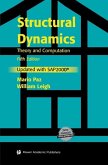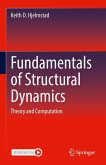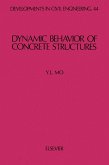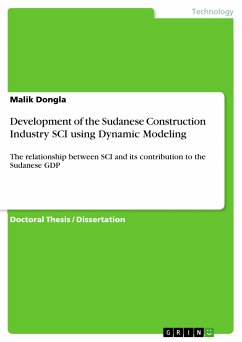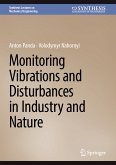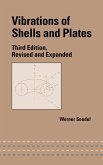Bachelor Thesis from the year 2013 in the subject Engineering - Civil Engineering, grade: AA, Gujarat University (Gujarat Technological University), course: Final Year Project, language: English, abstract: Ever since the existence of mankind, it has noticed a remarkable advancement in field of science and technology. Traditional hand weaving methods have been replaced by modern and speedy looms machine. With faster production rate, these machines proved to be a boon for textile manufacturers. However, they come with an unnoticed problem of "vibration". Hence, there arises a need to study the effects of vibrations on the structural as well as non structural components of the building. Here in this project, an attempt has been made to study the dynamic behavior of a structure for looms industry subjected to vibration due to operations of looms machine; by changing its various parameters. With an increase in demand of textile, more and more looms machines are being installed every day. While designing the structure to house these looms it becomes incumbent upon the designer to curtail the amplitude of vibrations within the permissible limits. One must also make sure that the frequency of structure is separated for operating frequency of machine by a good margin, so that the "Resonance Condition" can be avoided. The looms machine fall under the category of reciprocating machine and have medium operating speed ranging from 100 rpm to 180 rpm. The main source of vibration is the Beating-Up motion. This generates a Harmonic Load due to the unbalanced force caused by the reciprocating sley movement. Hence, the designing of structure for looms industry is a complex process which needs prime considerations. The cost of dynamic analysis of these structure is paramount, hence a small fraction of amount is being spent might lead to inadequately constructed structures which may result in failure and shut downs, exceeding many times the cost of the capital investment required for properly designed and built structure. Now, in such a case by executing parametric study, one can decide which parameter out of many is most sensitive to odd results, so that by varying those parameters only results can be brought to the required level and do not affect other reliable results. An attempt is made in the thesis to carry out a parametric study by using software STAAD. Pro Following Parameters are studied in this thesis 1. Sizes of Column 2. Sizes of Beams 3. Story Height 4. Number of Stories Effect of remedial measures like: 1. Cross Bracing below Plinth Level 2. Full Length Jacketing of Columns 3. Partial Length Jacketing of Columns 4. Cross Tie-Beams 5. Haunches at the Junction
Dieser Download kann aus rechtlichen Gründen nur mit Rechnungsadresse in A, B, BG, CY, CZ, D, DK, EW, E, FIN, F, GR, HR, H, IRL, I, LT, L, LR, M, NL, PL, P, R, S, SLO, SK ausgeliefert werden.



